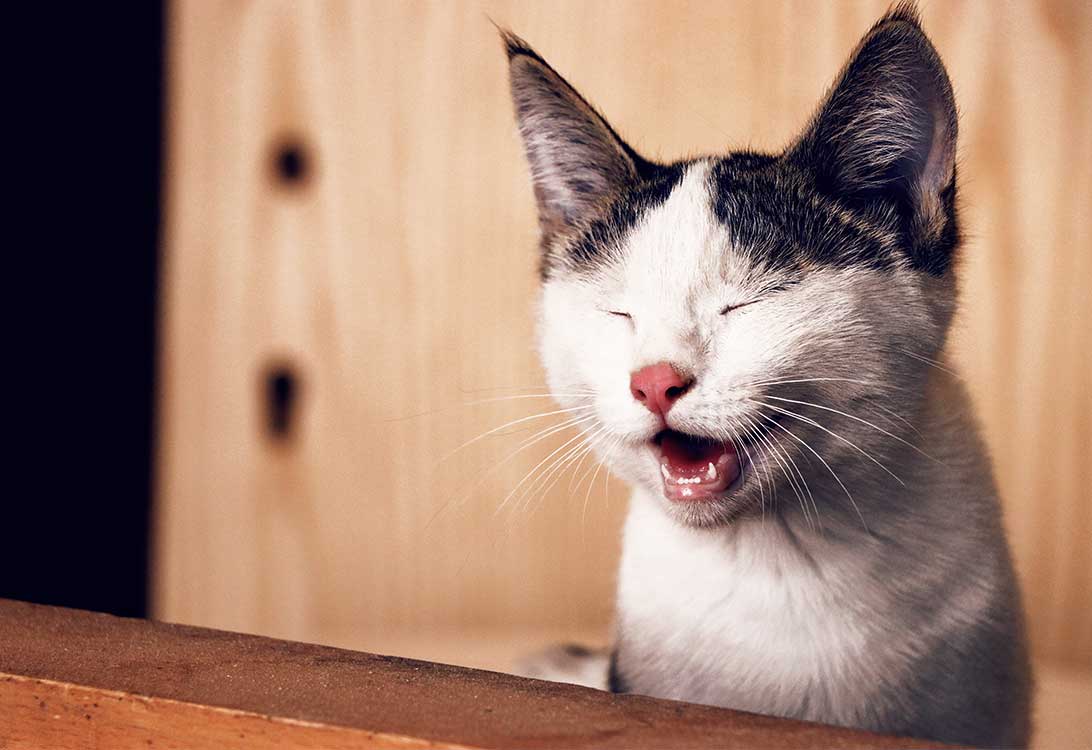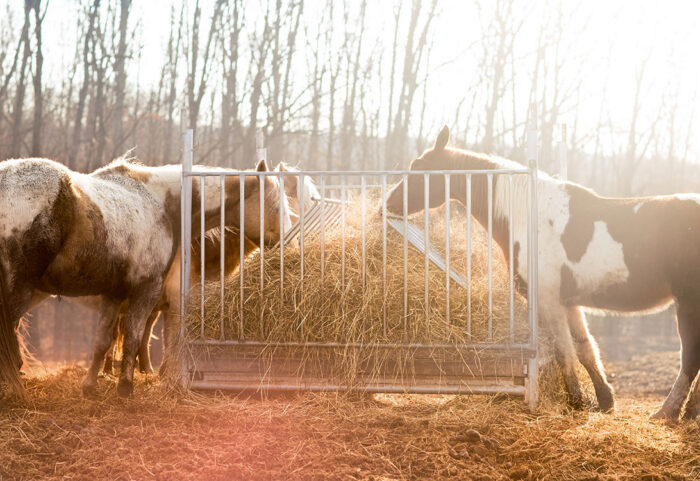Why is My Cat Sneezing So Much?

Sneezing is the body’s natural way of expelling unwanted matter from the respiratory system, but it can also be indicative of illness. Animals sneeze – most less than humans – and that includes cats. “Cat sneezing” is one of the most common topics our vets are asked about, usually after a pet owner notices a sudden uptick in achoos.
Reasons Cats Sneeze
Nasal Irritants
The easiest explanation for your cat’s sneezing habits, and even for a sudden bout of sneezing, is that something in the environment is irritating your cat’s respiratory system. Culprits can include anything from dust to chemical vapors, and sneezing will usually stop once the irritant (or the cat) is removed from the area. Another simple explanation for sudden sneezing is that something might be tickling your cat’s nose. Remember, cats use their noses to do more than just smell: they rub them on things to release sweat glands, effectively marking their territory. It’s relatively easy for a cat to get a blade of grass or lint ball in her nostrils! Most of the time, sneezing caused by a foreign body will take care of itself as your cat sneezes repeatedly. It’s also entirely possible for a cat to suffer from seasonal allergies. Cats don’t have adverse reactions to allergens like pollen as frequently as humans, but it does happen. If you notice your cat’s sneezing coincides with a specific season or plant bloom, you can probably chalk it up to an allergic reaction.
Medical Causes
Some cat owners are surprised to find out that sneezing can be a symptom of an underlying medical issue. Of course, felines get colds too, and simple viruses can lead to sneezing, low energy, and decreased appetite for a short period of time. Sneezing can also be a symptom of at least two viruses that have far more serious connotations:
- Feline herpes virus: Not contagious to humans; symptoms such as sneezing can be controlled with medication.
- Feline calcivirus: Usually resulting in mouth ulcers; can spread to respiratory system and lead to pneumonia if left untreated.
Viruses aren’t the only kind of illness that can lead to sneezing, either. Dozens of common feline infections may eventually affect the respiratory system. Sneeze-inducing infections include: Feline leukemia, Bortadella, Mycoplasma, Infectious Peritonitis, FIV (Feline Immunodeficiency Virus). Fungal infections such as ringworm can also be to blame. Most of these infections bring with them symptoms other than sneezing that your vet can use to help diagnose your cat. A few one-off medical issues also might lead to incessant sneezing. The application of an intranasal vaccine might cause your cat to sneeze for a day or two, but the behavior should gradually subside. Dental disease, particularly root infections, also might eventually result in respiratory symptoms like sneezing.
When to Call the Vet About Cat Sneezing
Most cats sneeze, but when should you be worried? If your cat is exhibiting any of the following signs, call a licensed vet in your area to schedule a visit:
- Frequent sneezing in an adult cat accompanied by unusually foul-smelling breath
- Constant sneezing accompanied by discharge of the nose, eyes, and/or mouth
- Sneezing that results in blood in the nostrils or mucus
- Sneezing accompanied by behavioral changes such as lethargy or lack of appetite
In general, it’s always a good idea to call the vet if you’re concerned about your cat. You know best what’s normal and what’s out of whack!


